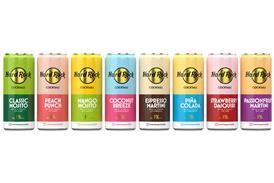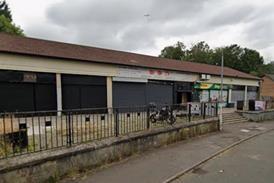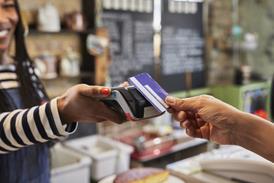Expanding or taking on a new business when times are tough can seem prohibitively daunting, but if an opportunity to franchise came up, that venture may seem instantly less risky.
Franchising in food and retail is growing and the current economic meltdown - along with the rise in unemployment - means it's likely to continue growing, according to Tom Endean, British Franchise Association (BFA) marketing manager.
"More people are looking to start their own business, and so franchising, which is a proven and successful option, is showing to be of great interest to an increasing number of people," he says.
"A franchise business has a proven model that is transferable and can be taught. This is then supported by the franchisor, giving you a much higher chance of success than if you were looking to start a new business from scratch."
Mike Greene, chief executive of shopper-research company HIM, believes that instead of hindering, the recession could be aiding growth: "Some people who get made redundant may be inclined to invest redundancy payments into opening a franchise," he says.
Growing strong
But the recession isn't the only reason franchising is looking appealing. Retailers have turned to licensing as a cost-effective way to be their own boss for some years. Costcutter, for example, has a network of stores operating on a licensed basis, and Southern Co-operatives has announced its intention to franchise the Co-op brand within its operating area in the south of England. It was reported last month that 100 franchise stores are planned, with around 20 stores already in operation.
Meanwhile, BP began franchising its BP Connect and Wild Bean Café forecourt offer in November 2005. A spokesman for BP Connect explains why franchising is so attractive: "There are many benefits, including access to BP's brands, buying power and supply chain, competitive margins, margin-maintained promotions, and total business support."
Indeed, it's the level of support and the advantage of having an established brand that appeals. HIM's Greene says: "You take on a credible brand and enjoy the fact that the brand is known and recognised, providing you with a ready-made customer base. You also gain support with marketing and training, and gain economies of scale when ordering."
Internal opportunities
While entire-store franchises are growing, so too are in-store franchises, often creating mini stores within existing c-stores. Food to go has been one category that has seen a rise in franchised offers, and a franchisor that's proving popular is Subway. The sandwich chain now has 100 outlets within c-stores or on forecourts in the UK - and wants more.
Subway national accounts manager Caroline Thomson says: "Subway is looking for locations with good traffic flow, a prominent position with good visibility and good accessibility."
Saqib Gahfoor, who runs a Nisa store in Gateshead, Tyne & Wear, with brother Shami, introduced a Subway franchise about nine months ago, and is pleased with its performance.
"We wanted to introduce food to go and everyone had lots of money at that time so people were going out for their food more," says Saqib. "People were also health-conscious so we looked at a few things, but liked the range Subway offered. It's slowly picking up, but slower than it would have done last year because people have less money. Regular customers are now using the Subway, and we also have a post office so people are ordering their sandwich before they wait in line and pick it up after they've finished."
Aside from the Subway range fitting the Gahfoors' food to go needs, they were also swayed by the brand's market-leading position. "The brand does make a difference," says Saqib. "It would have been much more difficult if we'd just had our own sandwich counter."
Movies matter
Franchises are infiltrating other areas, too. Take Alan Isaac, who operates NearBuy in the Isle of Man. He introduced The Movie Booth self-service DVD rental franchise five months ago. "People seem to take an interest in it just because it's something they're not used to, or have never seen before, and that alone has been a great pull factor," says Alan. "Once they have used it, they invariably return and make repeat purchases.
"The guys at Movie Booth arranged for the system to be sent to us, set it all up and explained the software. Then it was just a matter of getting used to the system. As with any franchise, the only real barrier is the cost of entry. It's not a cheap solution but if someone was looking at supplying DVDs, has the resources to make it work and the space, then it's ideal for our sector."
The Movie Booth kiosks are now in 20 stores around the UK and Ireland, with another 11 due to go into c-stores soon. For £250 a month, retailers can lease a kiosk and benefit from promotions and an in-store demonstrator at the outset to show customers how it works. The half-a-square-metre vending machines hold 621 DVDs, and the company will set retailers up with a wholesale supplier and recommendations of films to stock.
Despite its advantages, franchising isn't without its disadvantages, though many believe that the upsides far outweigh any downsides. The BFA's Endean warns: "It's still a new business that needs to become established.
"On top of this, success is still not guaranteed. There is always a risk that the business won't turn out as you would like. You buy into a proven business system but you
also take on responsibility for following it. If you're someone who has to do things your way, this may not be for you."
Losing an element of control may put off some entrepreneurial retailers, but not Subway franchisee Saqib. "You've got to stay on top of things with a Subway; there are standards to be met, but I don't see that as a downside. It keeps everyone in line and makes sure we're following high standards."
As for the future of franchising in the c-store sector, HIM's Mike Greene reckons it will only get bigger: "There is plenty of opportunity for recognised brands to franchise," he adds.
Franchising in food and retail is growing and the current economic meltdown - along with the rise in unemployment - means it's likely to continue growing, according to Tom Endean, British Franchise Association (BFA) marketing manager.
"More people are looking to start their own business, and so franchising, which is a proven and successful option, is showing to be of great interest to an increasing number of people," he says.
"A franchise business has a proven model that is transferable and can be taught. This is then supported by the franchisor, giving you a much higher chance of success than if you were looking to start a new business from scratch."
Mike Greene, chief executive of shopper-research company HIM, believes that instead of hindering, the recession could be aiding growth: "Some people who get made redundant may be inclined to invest redundancy payments into opening a franchise," he says.
Growing strong
But the recession isn't the only reason franchising is looking appealing. Retailers have turned to licensing as a cost-effective way to be their own boss for some years. Costcutter, for example, has a network of stores operating on a licensed basis, and Southern Co-operatives has announced its intention to franchise the Co-op brand within its operating area in the south of England. It was reported last month that 100 franchise stores are planned, with around 20 stores already in operation.
Meanwhile, BP began franchising its BP Connect and Wild Bean Café forecourt offer in November 2005. A spokesman for BP Connect explains why franchising is so attractive: "There are many benefits, including access to BP's brands, buying power and supply chain, competitive margins, margin-maintained promotions, and total business support."
Indeed, it's the level of support and the advantage of having an established brand that appeals. HIM's Greene says: "You take on a credible brand and enjoy the fact that the brand is known and recognised, providing you with a ready-made customer base. You also gain support with marketing and training, and gain economies of scale when ordering."
Internal opportunities
While entire-store franchises are growing, so too are in-store franchises, often creating mini stores within existing c-stores. Food to go has been one category that has seen a rise in franchised offers, and a franchisor that's proving popular is Subway. The sandwich chain now has 100 outlets within c-stores or on forecourts in the UK - and wants more.
Subway national accounts manager Caroline Thomson says: "Subway is looking for locations with good traffic flow, a prominent position with good visibility and good accessibility."
Saqib Gahfoor, who runs a Nisa store in Gateshead, Tyne & Wear, with brother Shami, introduced a Subway franchise about nine months ago, and is pleased with its performance.
"We wanted to introduce food to go and everyone had lots of money at that time so people were going out for their food more," says Saqib. "People were also health-conscious so we looked at a few things, but liked the range Subway offered. It's slowly picking up, but slower than it would have done last year because people have less money. Regular customers are now using the Subway, and we also have a post office so people are ordering their sandwich before they wait in line and pick it up after they've finished."
Aside from the Subway range fitting the Gahfoors' food to go needs, they were also swayed by the brand's market-leading position. "The brand does make a difference," says Saqib. "It would have been much more difficult if we'd just had our own sandwich counter."
Movies matter
Franchises are infiltrating other areas, too. Take Alan Isaac, who operates NearBuy in the Isle of Man. He introduced The Movie Booth self-service DVD rental franchise five months ago. "People seem to take an interest in it just because it's something they're not used to, or have never seen before, and that alone has been a great pull factor," says Alan. "Once they have used it, they invariably return and make repeat purchases.
"The guys at Movie Booth arranged for the system to be sent to us, set it all up and explained the software. Then it was just a matter of getting used to the system. As with any franchise, the only real barrier is the cost of entry. It's not a cheap solution but if someone was looking at supplying DVDs, has the resources to make it work and the space, then it's ideal for our sector."
The Movie Booth kiosks are now in 20 stores around the UK and Ireland, with another 11 due to go into c-stores soon. For £250 a month, retailers can lease a kiosk and benefit from promotions and an in-store demonstrator at the outset to show customers how it works. The half-a-square-metre vending machines hold 621 DVDs, and the company will set retailers up with a wholesale supplier and recommendations of films to stock.
Despite its advantages, franchising isn't without its disadvantages, though many believe that the upsides far outweigh any downsides. The BFA's Endean warns: "It's still a new business that needs to become established.
"On top of this, success is still not guaranteed. There is always a risk that the business won't turn out as you would like. You buy into a proven business system but you
also take on responsibility for following it. If you're someone who has to do things your way, this may not be for you."
Losing an element of control may put off some entrepreneurial retailers, but not Subway franchisee Saqib. "You've got to stay on top of things with a Subway; there are standards to be met, but I don't see that as a downside. It keeps everyone in line and makes sure we're following high standards."
As for the future of franchising in the c-store sector, HIM's Mike Greene reckons it will only get bigger: "There is plenty of opportunity for recognised brands to franchise," he adds.
Is a franchise right for you?
Answering that question is all about doing your homework and research, says Tom Endean, marketing manager at the British Franchise Association. "The realities of franchising involve significant investment, time and hard work. The nature of the business provides greater levels of security and resilience, but the control, restrictions and procedures also increase. Some people may not want this way of working; for others it is a dream come true."
Endean recommends visiting franchising exhibitions, attending seminars and reading the franchise websites and press. "Only you can decide, so speak to as many people as possible and get an understanding about what you would need to commit to personally."
Answering that question is all about doing your homework and research, says Tom Endean, marketing manager at the British Franchise Association. "The realities of franchising involve significant investment, time and hard work. The nature of the business provides greater levels of security and resilience, but the control, restrictions and procedures also increase. Some people may not want this way of working; for others it is a dream come true."
Endean recommends visiting franchising exhibitions, attending seminars and reading the franchise websites and press. "Only you can decide, so speak to as many people as possible and get an understanding about what you would need to commit to personally."
Shaking all over
Shakies (www.shakies.co.uk ) combines leading confectionery brands with a milk drink - everything from Crunchie and Dime Bar to Refreshers and Skittles. A minimum of 300sq ft shop floor and 250sq ft storage space is needed, and proximity to a school, college or tourist destination is desirable. A single-unit franchise costs about £39,000, including all equipment, fittings, initial stock, full training, a tailored launch marketing programme, programme development, and ongoing support. The lease of the premises and refurbishment is an additional cost.
Shakies (www.shakies.co.uk ) combines leading confectionery brands with a milk drink - everything from Crunchie and Dime Bar to Refreshers and Skittles. A minimum of 300sq ft shop floor and 250sq ft storage space is needed, and proximity to a school, college or tourist destination is desirable. A single-unit franchise costs about £39,000, including all equipment, fittings, initial stock, full training, a tailored launch marketing programme, programme development, and ongoing support. The lease of the premises and refurbishment is an additional cost.


























No comments yet